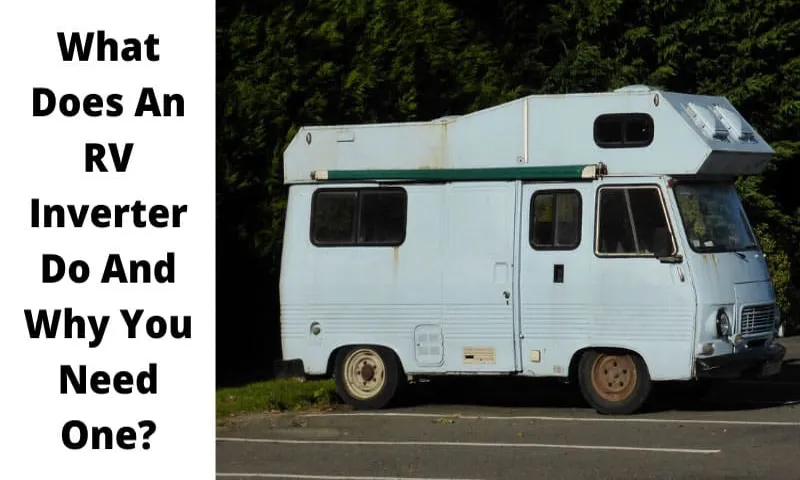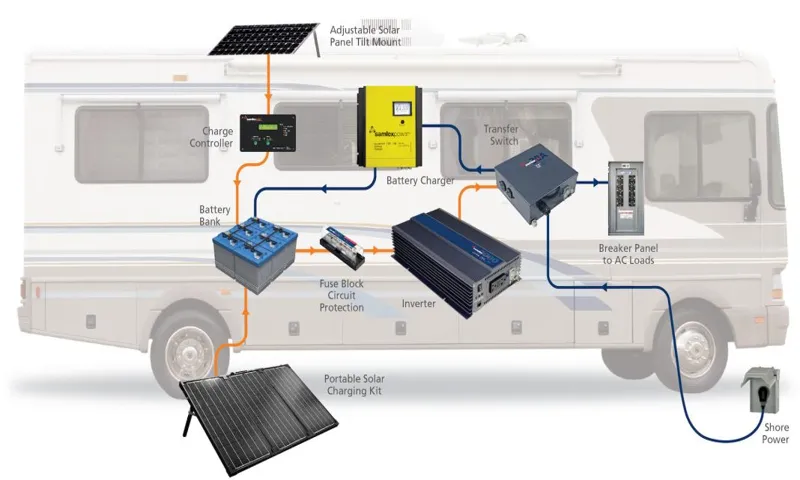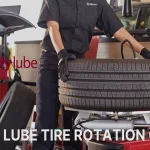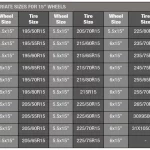Do you love camping and enjoying the freedom of the open road in your RV? If so, you may have heard about a power inverter and wondered what it does and why it is important for your RV. Well, fret not, because in this blog post, we will explore the world of power inverters and uncover all the mysteries behind them! Think of a power inverter as a magical box that transforms the energy stored in your RV’s battery into a usable form for your electronic devices. Just like a translator who seamlessly converts one language into another, a power inverter converts direct current (DC) power from your RV’s battery into alternating current (AC) power that can be used by your appliances and gadgets.
So, why is this important? Well, imagine wanting to charge your phone, power up your laptop, or run a small kitchen appliance in the middle of nowhere. Without a power inverter, you would be out of luck, as most modern devices require AC power to function properly. It’s like trying to get your Ohm’s Law on without a calculator! But fear not, because with a power inverter, you can bring the comforts of home with you wherever you go.
Whether you’re working remotely from your RV or simply want to watch a movie on your television, a power inverter ensures that you have a steady supply of AC power to keep you plugged in and entertained. In addition to providing AC power, a power inverter also acts as a guardian for your RV’s electrical system. It regulates the voltage output, protects against power surges, and even shuts off if the battery voltage drops too low.
It’s like having a personal bodyguard for your electrical devices, ensuring their safety and longevity. So, next time you hit the road in your RV, don’t forget the importance of a power inverter. It’s the unsung hero that bridges the gap between your battery and your electronic devices, allowing you to enjoy all the conveniences of home while on the go.
Happy camping!
Table of Contents
Introduction
So you’re planning a road trip in your RV and you’ve heard about something called a power inverter. But what exactly does it do? Well, think of a power inverter as a translator for your electrical system. You see, most RVs have a 12-volt DC (direct current) electrical system, but many of the appliances and devices you want to use, like a laptop or a blender, require 120-volt AC (alternating current) power.
That’s where the power inverter comes in. It takes the 12-volt DC power from your RV’s battery and converts it into 120-volt AC power, allowing you to use all those devices on the road. So whether you want to make a smoothie or charge your phone, a power inverter is an essential piece of equipment for any RV owner.
Explanation of Power Inverter
power inverter Introduction: A power inverter is a handy device that allows you to convert DC (direct current) power from your car or truck’s battery into AC (alternating current) power that can be used to run various electronic devices. Whether you’re on a road trip or camping adventure, a power inverter can be a lifesaver when it comes to powering up your devices on the go. It’s like having a portable electrical outlet right in your vehicle.
But how does it work? Let’s dive in and find out.

Benefits of Having a Power Inverter on an RV
power inverter, RV, benefits
Types of Power Inverters
If you’re an avid RV enthusiast, you may have heard about power inverters and wondered what they actually do. Well, let me break it down for you. A power inverter is a device that converts DC (direct current) power from your RV’s batteries into AC (alternating current) power, which is what most household appliances and devices use.
This means that even when you’re boondocking or camping in a remote location without access to electric hookups, you can still power up your TV, microwave, or even charge your laptop or phone. It’s like having a portable electric grid right in your RV. So whether you’re watching a movie on a lazy evening or want to cook up a delicious meal on your trip, a power inverter is your go-to solution.
Modified Sine Wave Inverters
modified sine wave inverters
Pure Sine Wave Inverters
power inverters, pure sine wave inverters, types of power inverters One common type of power inverter is the pure sine wave inverter. While there are other types of inverters available, such as modified sine wave inverters and square wave inverters, pure sine wave inverters are considered the most reliable and efficient. Pure sine wave inverters produce a smooth and continuous flow of power, similar to what you would get from the utility company.
This makes them ideal for powering sensitive electronic devices, such as laptops, smartphones, and medical equipment. Compared to other types of inverters, pure sine wave inverters offer several advantages. For one, they produce cleaner and more stable power, which can help prevent damage to your devices.
They also tend to be more efficient, meaning they waste less energy during the conversion process. Additionally, pure sine wave inverters produce less electrical noise, which can interfere with the performance of sensitive equipment. When choosing a power inverter, it’s important to consider your specific power needs and the devices you plan to power.
While pure sine wave inverters may be more expensive than other types, they are often the best choice for powering sensitive electronics and appliances. So, if you’re looking for a reliable and efficient power inverter, a pure sine wave inverter is definitely worth considering.
Common Uses of Power Inverters on an RV
When it comes to RVs, power inverters play a vital role in ensuring a smooth and comfortable experience. So, what does a power inverter do on an RV? Essentially, a power inverter converts DC (direct current) power from the RV’s battery into AC (alternating current) power, which is the type of electricity used by most household appliances and electronic devices. This means that with a power inverter, you can use your RV’s battery power to operate devices such as laptops, TVs, refrigerators, and even power tools.
It’s like having a portable power source that allows you to enjoy the comforts of home while on the road. Whether you’re camping in a remote location or simply need to charge your phone while on the move, a power inverter on your RV is a must-have accessory. So, next time you hit the road in your RV, remember the importance of your power inverter and the convenience it brings to your adventures.
Charging Electronic Devices
“power inverters on an RV” In an RV, power inverters are incredibly useful for a variety of reasons, and one of the most common uses is charging electronic devices. Whether you’re camping in a remote location or simply want to stay connected while on the road, having the ability to charge your phone, laptop, or other gadgets is essential. With a power inverter, you can convert the DC power from your RV’s batteries into AC power, similar to what you would find in a regular household outlet.
This allows you to plug in your electronic devices and charge them just as you would at home. So, whether you need to keep your phone charged for navigation purposes or want to watch a movie on your laptop, a power inverter on your RV ensures you can stay powered up no matter where your travels take you.
Running Appliances
power inverters on an RV Running appliances on an RV can be a convenient way to bring the comforts of home on the road. However, the challenge lies in finding a way to power these appliances when you are off-grid or don’t have access to shore power. This is where power inverters come in.
Power inverters on an RV convert the DC power from the battery into AC power, allowing you to run appliances that would typically require AC power. This means you can power up your TV, charge your laptop, or even run small kitchen appliances like a microwave or toaster oven. With a power inverter on your RV, you can enjoy all the conveniences of home no matter where you travel.
Using Power Tools
power tools, power inverters, RV, common uses
Choosing the Right Power Inverter for Your RV
If you’re an avid RV enthusiast, you may have heard of power inverters. But what exactly does a power inverter do on an RV? Well, let me break it down for you. A power inverter is a device that converts DC (direct current) power from your RV’s batteries into AC (alternating current) power that can be used to run most household appliances and electronic devices.
This means that when you’re out on the road, you can still enjoy the comforts of home by powering your TV, refrigerator, microwave, or even charging your laptop or phone. It’s like having a portable generator that allows you to bring the convenience of electricity wherever you go. So, whether you’re on a camping trip or traveling in your motorhome, a power inverter is a must-have accessory to ensure that you have all the power you need for a comfortable and enjoyable journey.
Calculating Power Requirements
power inverter, RV, power requirements, choosing the right In order to power all of the electronics and appliances in your RV, you’ll need a power inverter. But choosing the right one can be a bit overwhelming. You need to consider the power requirements of your RV, as well as the type of appliances you’ll be using.
A power inverter converts DC power from your RV’s batteries into AC power that can be used to run your electronics and appliances. The power requirements of your RV will depend on how many and what type of appliances you plan on using. This includes things like your refrigerator, microwave, TV, and air conditioner.
It’s important to calculate your expected power usage so that you can choose an inverter with the right capacity. You’ll also want to consider the size and weight of the inverter, as well as any additional features you may need. So take some time to research and compare different models to find the one that suits your needs and provides enough power for all of your RV adventures.
Considering Portability and Size
When it comes to choosing the right power inverter for your RV, one important factor to consider is portability and size. After all, space is often limited in an RV, and you want to make sure that your power inverter doesn’t take up too much valuable real estate. Additionally, portability is key if you plan on using your power inverter on the go or if you want the option to easily move it between different locations.
Look for compact and lightweight options that can be easily stored when not in use. Consider whether you need a hardwired or plug-in model, and think about where you will be installing it in your RV. By carefully considering the size and portability of your power inverter, you can ensure that it fits seamlessly into your RV setup while still providing the power you need for all of your devices and appliances.
Examining Inverter Features
Inverter features are an important consideration when choosing the right power inverter for your RV. One key feature to look for is the wattage capacity of the inverter. This will determine how much power it can provide to your RV appliances and devices.
It’s important to choose an inverter with a wattage capacity that matches or exceeds the power needs of your RV. Another important feature to consider is the number of AC outlets on the inverter. More outlets allow you to power multiple devices at the same time, which can be convenient when you have multiple appliances or devices that need to be powered.
Additionally, it’s worth considering the inverter’s size and weight, especially if space is limited in your RV. Lighter and more compact inverters are easier to install and transport. Some inverters also come with built-in safety features, such as overvoltage and overload protection, which can help prevent damage to your RV’s electrical system.
Overall, understanding and considering these inverter features will help you choose the right power inverter for your RV and ensure you have reliable and efficient power on your travels.
Conclusion
In conclusion, a power inverter on an RV is like the magical wizard of electrical devices. It takes the DC power from your battery and waves its wand, transforming it into AC power fit for all your electronic needs. It’s like having a portable Hogwarts for electricity on wheels! So, whether you want to power up your TV and catch the latest wizarding world news or brew a cauldron of coffee in your portable espresso machine, a power inverter is essential for all RV enthusiasts.
Just remember, with great power comes great responsibility, so always use your magical powers wisely and be prepared for a few spells of amperage control. Happy RV adventuring!”
FAQs
What is a power inverter and why is it necessary for RVs?
A power inverter is a device that converts DC power from RV batteries into AC power, allowing you to use household appliances and electronics while on the road.
Can I run all my appliances and electronics on an RV power inverter?
The size and capacity of your power inverter will determine what appliances and electronics you can run. It is important to calculate your power needs and choose an inverter suitable for your energy demands.
How do I choose the right power inverter for my RV?
To choose the right power inverter, you need to consider factors such as the size of your RV, power requirements of your appliances, and whether you want a pure sine wave or modified sine wave inverter.
What are the differences between pure sine wave and modified sine wave inverters?
Pure sine wave inverters produce a smooth and consistent power waveform, similar to what you get from a home electrical outlet. Modified sine wave inverters produce a more jagged waveform and may not be suitable for sensitive electronics.
Can a power inverter drain my RV batteries quickly?
If you run power-hungry appliances for extended periods without recharging your batteries, it can drain them quickly. It’s important to monitor your battery levels and use energy-efficient appliances when possible.
Are power inverters safe to use in an RV?
Power inverters are generally safe to use if installed and used correctly. However, it’s important to follow manufacturer instructions, ensure proper grounding, and use high-quality and properly rated components.
Can I install a power inverter myself, or do I need a professional?
While some RV owners may have the necessary skills to install a power inverter themselves, it is recommended to consult a professional or an RV technician to ensure proper installation and avoid any electrical issues.
Can I use a power inverter with solar panels on my RV? A8. Yes, you can use a power inverter with solar panels to convert the DC power generated by the panels into AC power for your appliances. This can enhance the energy efficiency of your RV and reduce the need for external power sources.
How can I protect my power inverter from damage?
To protect your power inverter, you can use surge protectors, install fuse or circuit breaker systems, and ensure proper ventilation to prevent overheating. Regular maintenance and inspections can also help identify and resolve issues early on.
How long do power inverters typically last?
The lifespan of a power inverter can vary depending on its quality, usage, and maintenance. On average, a well-maintained power inverter can last anywhere from 5 to 15 years.
Can a power inverter be used while driving an RV?
Yes, a power inverter can be used while driving an RV to power appliances and electronics. However, it’s important to ensure that the inverter is properly secured and connections are stable to prevent any accidents or damage.
Are there any safety precautions I should take when using a power inverter in my RV?
Some safety precautions to take when using a power inverter in your RV include avoiding overloading the inverter, using properly rated cables and connectors, and regularly checking for signs of overheating or damage.



